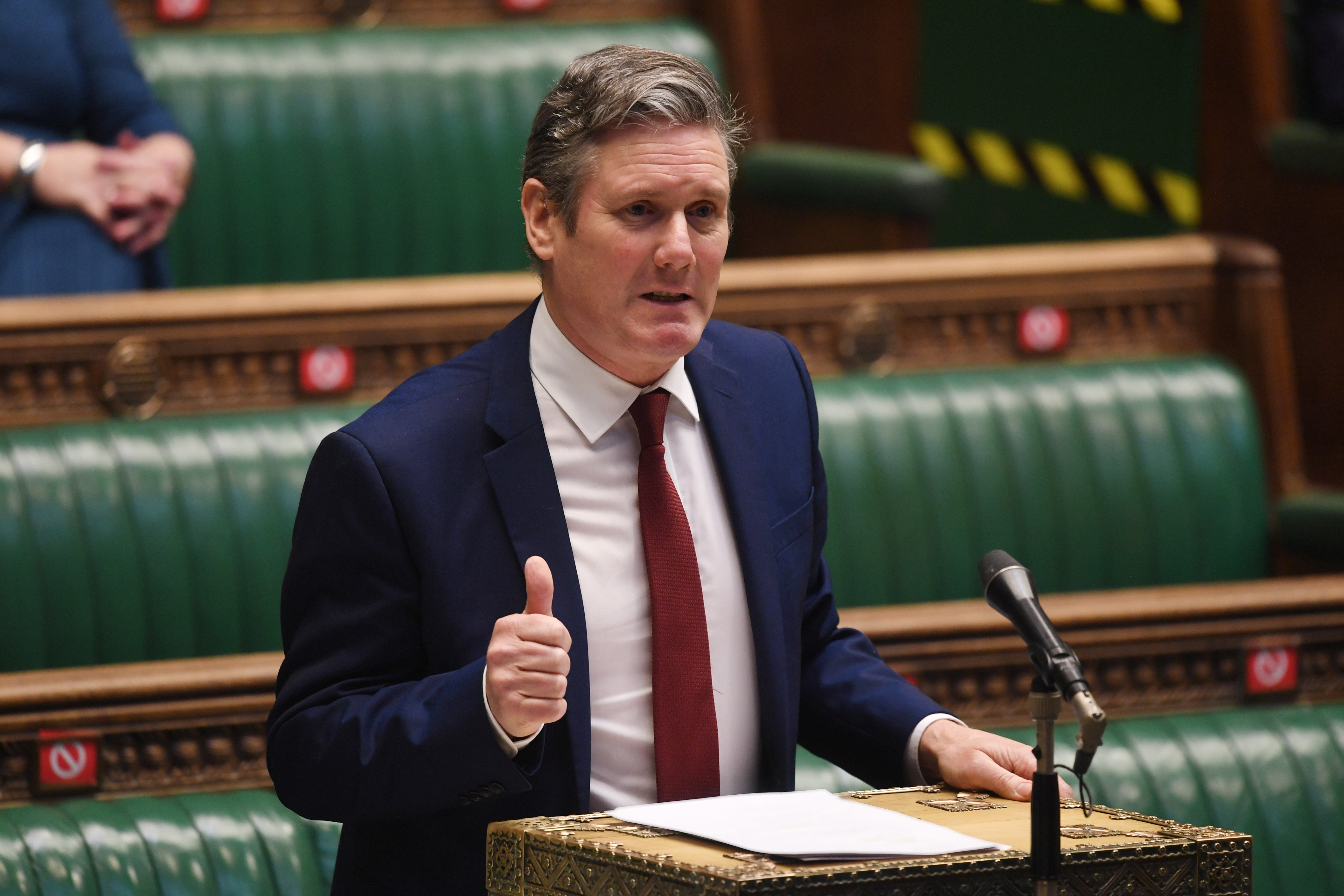Why the Budget will prove difficult for Keir Starmer
With the chancellor’s set-piece speech coming up on Wednesday, John Rentoul looks at the parliamentary peculiarities


We weren’t supposed to be having a Budget this week. When he was chancellor, Philip Hammond moved the annual event from the spring to autumn, which the Treasury has long thought is the right time for it, to allow time for legislation before the start of the tax year. Hammond’s successor, Sajid Javid, never got to make a Budget statement because the one planned for November 2019 was postponed because of the election. A few weeks before Javid was ready to try again, he was replaced with Rishi Sunak, who delivered a well-received Budget on 11 March last year – which was overtaken within days by the overwhelming coronavirus crisis.
Sunak delivered a series of emergency statements, each more momentous than the last, and each more fiscally significant than any peacetime Budget. At the time, it was innocently assumed that everything could start to return to normal in November last year: the Treasury could get back to having a Budget at the time of year when it wanted it, and Sunak would be able to set out the plan for returning to normal public finances.
Instead, the government announced another lockdown and the Budget was downgraded to the “Spending Review”, with the “real” Budget decisions postponed until this month. It would be foolish to predict whether we will have a second Budget this November.
Safer to predict that Sunak will stand up on Wednesday soon after 12.30pm to deliver his second formal Budget. This will be after an instantly forgotten session of Prime Minister’s Questions, and after a short pause for Lindsay Hoyle, the speaker, to vacate the chair, which will be taken by his deputy, Dame Eleanor Laing. This is a tradition dating from the 17th century, when the speaker was considered to be the Crown’s stooge, and MPs insisted that their discussions about taxation should be chaired by someone else.
There are other, more recent, traditions. The chancellor is not supposed to be interrupted during his speech, and it is then for the leader of the opposition, rather than the shadow chancellor, to respond. This will be Keir Starmer’s first Budget response, and it is one of the toughest fixtures on the leader of the opposition’s list. He may be given a briefing note by the Treasury in advance with some of the numbers in it, but he will find out about most of the speech at the same time as the rest of us: as Sunak delivers it.
This creates a temptation for chancellors to save the announcement that will give the opposition the most problems until right at the end, so that the leader of the opposition has to respond immediately to something that Sunak has had months to think about.
However, such devices tend not to have a lasting effect. Many Budgets that seem like triumphs in the chamber have started to unravel by the evening, although by a constitutional tradition stretching almost back as far as the English Civil War, it is not until lunchtime the next day that the Institute for Fiscal Studies takes the whole thing apart and lays it out on a rack for all to see.
The next day’s parliamentary business is given over to the first of four days of Budget debate, this time with the shadow chancellor leading for the opposition. But it probably won’t be for some time after the end of those debates on 9 March that MPs will finally get the chance to vote on any of the Budget measures. With the exception of a vote on things like tobacco and alcohol duties that take effect from midnight that night, which takes place (without a division) when the chancellor has sat down and before the leader of the opposition responds, any attempt to force a vote on Budget measures has to wait until the Finance Bill, which translates the Budget announcements into law, goes through its parliamentary stages.
Join our commenting forum
Join thought-provoking conversations, follow other Independent readers and see their replies
Comments